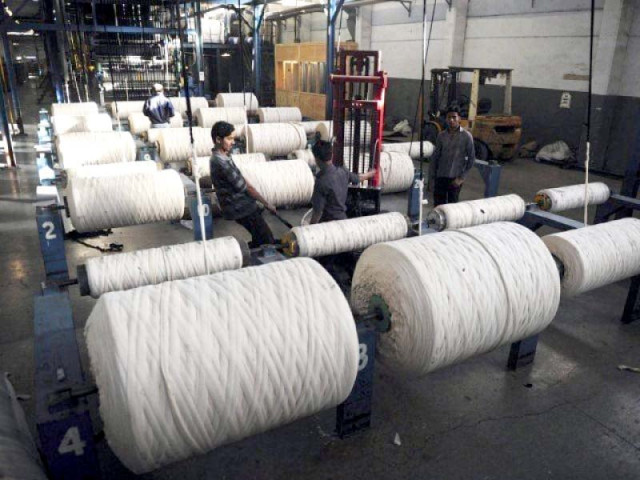Fifth month dip in textile exports
Shipments contract 28% in backdrop of global, domestic economic slowdown

akistan’s textile industry has continued to suffer from the effects of domestic economic meltdown as well as global economic slowdown as its exports dropped for the fifth consecutive month.
According to latest data, textile exports fell more than expected by 28.1% year-on- year (YoY) and 9.1% month-on-month, reaching $1.20 billion in February 2023.
Exports were the lowest since May 2021, when overseas shipments came in at $1.05 billion, said Arif Habib Limited Head of Research Tahir Abbas.
Explaining the reasons, Abbas cited the restrictions on imports, high interest rates and an overall slowdown in the global economy.
“This is not just happening in Pakistan, many other countries such as Bangladesh and Vietnam are also facing a similar situation,” he said. Topline Securities textile sector analyst Nasheed Malik stated that the decline in textile exports was expected due to a sharp drop in orders from the European and US buyers.
“The Covid-19 pandemic has had a significant impact on global economies, and the textile industry is no exception,” he pointed out, adding that restrictions on imports also caused shortage of raw material, which affected production activities at the textile industry.
Textile industry in a major contributor to Pakistan's economy and this decline will have a significant impact on the overall exports. This is the reason why businessmen are demanding that the government take steps to address the challenges facing the industry and offer incentives to exporters by reducing interest rates,” added Malik.
Exporters have often complained about stiff competition from other countries, particularly Bangladesh and Vietnam, which have been able to win more orders owing to a relatively low cost of production and better infrastructure. Keeping that in view, he emphasised that Pakistan should focus on improving its competitiveness by investing in infrastruce, reducing production cost and providing better incentives to the exporters.
"The fall in textiled exports is worrisome for Pakistan’s economy and also for the worker employed at the industry, many of whom have already lost their jobs," remarked the Topline analyst.
Meanwhile, Pakistan’s cotton production dropped by 34.5% in February, which reflected the impact of last year’s floods. In this scenario, a threat is looming over the textile industry, which requires around 14 million cotton bales annually.
Large-scale spinners had booked big orders when cotton prices were at peak, but prices dropped 20-25% by the time shipments arrived, coinciding with a deep recession in the global market.
Federation of Pakistan Chambers of Commerce and Industry (FPCCI) President Irfan Iqbal Sheikh recently warned that sudden withdrawal of power-sector subsidies to appease the IMF was likely to further hurt Pakistan's already declining exports. “Power subsidy was due to end by June 2023 but the government withdrew it hastily before the cut-off date,” he said.
According to the Pakistan Bureau of Statistics, exports have continued to fall for seven consecutive months from August 2022 to February 2023. Latest statistics showed that Pakistan’s exports fell by 18.67% YoY to $2.31 billion in February 2023.
Union of Small and Medium Enterprises (UNISAME) President Zulfikar Thaver, however, was of the view that the discontinuation of zero-rated industrial package was justidied as exporters were now benefiting from a favourable rupee-dollar exchange rate.
Any additional relief for the exporters would be unfair on the importers of other sectors who were paying high prices, he said.


















COMMENTS
Comments are moderated and generally will be posted if they are on-topic and not abusive.
For more information, please see our Comments FAQ